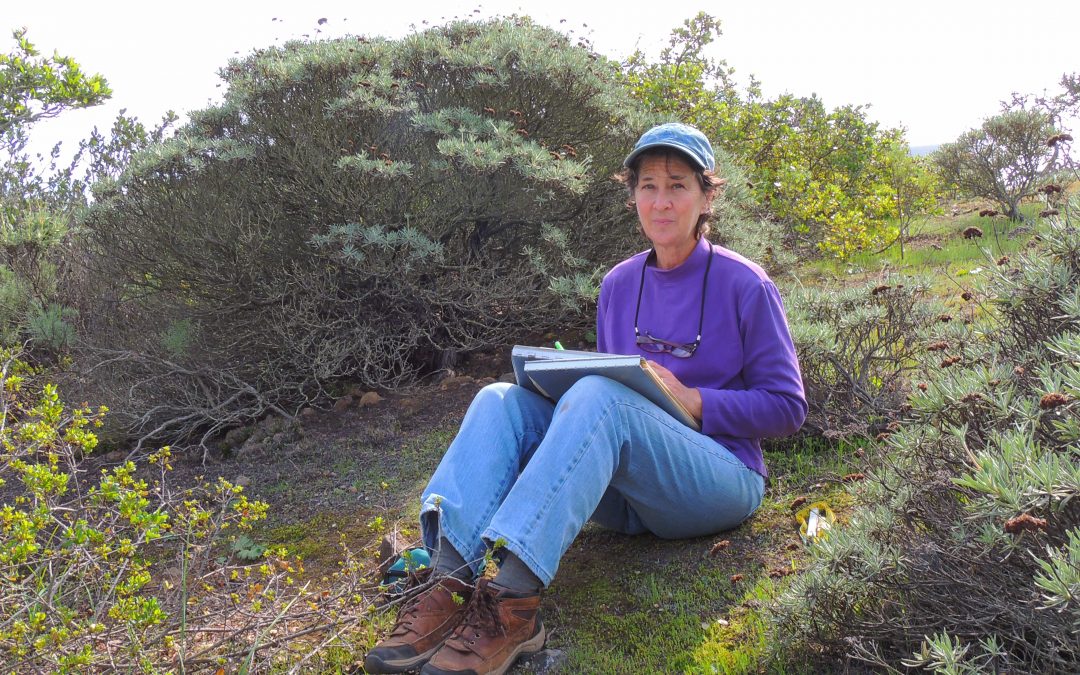Like much of the arid southwest, the California Channel Islands were used as ranches from about 1800 to the 1950’s and beyond. This land use disrupted native vegetation and altered the ways water and nutrients cycled in the ecosystem, fundamentally changing habitats. Plants and animals on islands have no place to go in the face of such change, and many of them were at risk of disappearing forever. That’s why the Channel Islands National Park was created: to conserve and recover the essential functions supporting the unique island biota. Kathryn’s studies as a USGS Research Ecologist at the islands over the past two decades has focused on the rare plants, in two main ways: 1) conducting long-term demographic studies and outdoor experiments for population recovery, and 2) rebuilding habitat for some of these plants that inhabit the mysterious and beautiful cloud forests of the islands.
STAR Fellows have the opportunity to participate with Kathryn in both of these programs: monitoring plants, hiking island landscapes searching for rare species, collecting and planting seeds, studying the insects that interact with them, and rebuilding a cloud forest ecosystem on Santa Rosa Island from the bedrock up. The field team lives together in the CSU Channel Islands Santa Rosa Island Field Station for five “island tours” each summer, commuting to the study sites on foot and in pickup trucks, collecting data in the field and plant nursery, and entering and analyzing it back at the bunkhouse.
Plant ecology means being outdoors and working with study designs that interact with nature, perfect for those folks who like to observe and conserve the natural world. STAR fellow are a part of a fortunate crew who consider themselves lucky to be able to work every day in a beautiful National Park, where most people come for vacations!

